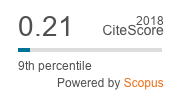Parental conceptions about child emotional development
DOI :
https://doi.org/10.1590/0102.3772e3634Mots-clés :
Emotions, Emotional development, Babies, Beliefs (non-religious), AutonomyRésumé
Mothers’ and fathers’ conceptualizations of joy, sadness, anger, fear, pride and shame were assessed. Their beliefs regarding the importance of children’s manifestation of those emotions and the connection with the profiles of autonomy, relatedness and related-autonomy were also assessed. Sixty mother- father dyads with children up to three years old participated in the study. Questionnaires of parents’ conceptualizations of emotions were used. Most participants considered joy an important emotion to be manifested by children of their kids’ age (with an individual character motivation). However, anger, pride and shame were associated with older children. Mothers’ and fathers’ conceptualizations and beliefs were not divergent. The autonomous-related self model correlated positively with the importance mothers and parents attributed to all studied emotions.
Téléchargements
Références
Aznar, A., Tenenbaum, H. R. (2013). Spanish parents' emotion talk and their children's understanding of emotion. Frontiers in Psychology, 4, 1-11. https://doi.org/10.3389/fpsyg.2013.00670
Brown, G. L., Craig, A. B., & Halberstadt, A. G. (2015). Parent gender differences in emotion socialization behaviors vary by ethnicity and child gender. Parenting: Science and Practice, 15, 135-157. https://doi.org/10.1080/15295192.2015.1053312
Cole, P. M. & Moore, G. A. (2015). About face! Infant facial expression of emotion. Emotion Review, 7(2), 116-120. https://doi.org/10.1177/1754073914554786
Castro, V. L., Halberstadt, A. G., Lozada, F. T., &. Craig, A. B. (2015). Parents’ emotion-related beliefs, behaviours, and skills predict children’s recognition of emotion. Infant and Child Development, 24, 1-22. https://doi.org/10.1002/icd.1868
Chan, S. M. (2011). Mothers’ construal of self and emotion socialisation goals. Early Education & Development, 181(5), 613-624. https://doi.org/10.1080/03004431003671820
Cole, M. (1998). Cultural psychology: A once and future discipline. The Belknap Press of Harvard University Press.
Denham, S. A. (1998). Emotion development in young children. The Guilford Press.
Dunsmore, J. C., & Halberstadt, A. G. (1997). How does family emotional expressiveness affect children’s schemas? In K. C. Barrett (Ed.), The communication of emotion: Current research from diverse perspectives (pp. 45-68). Jossey-Bass.
Dunsmore, J. C., Her, P., Halberstadt, A. G., & Perez-Rivera, M. B. (2009). Parents´ beliefs about emotions and children´s recognition of parents´ emotions. Journal of Nonverbal Behavior, 33(2), 121-140. https://doi.org/10.1007/s10919-008-0066-6
Ekman, P. (2016). What scientists who study emotion agree about. Perspectives on Psychological Science, 11(1) 31-34. https://doi.org/10.1177/1745691615596992.
Halberstadt, A. G., Dunsmore, J. C., Bryant, A., Jr, Parker, A. E., Beale, K. R., & Thompson, J. A. (2013). Development and validation of the Parents’ Beliefs about Children’s Emotions Questionnaire. Psychological Assessment, 25, 1195-1210. https://doi.org/10.1037/a0033695
Harkness, S., Super C. M. (1996). Introduction. In S. Harkness, C. M. Super (Eds.), Parents' cultural belief systems: Their origins, expressions and consequences (pp. 1-23). Guilford Press.
Harkness, S., Charles S. M. , van Tijen, N. (2000). Individualism and the "Western Mind" reconsidered: American and Dutch parents' ethnotheories of the child. New Directions for Child and Adolescent Development, 87, 23-39. https://doi.org/10.1002/cd.23220008704
Izard, C. E. (2007). Basic emotions, natural kinds, emotion schemas, and a new paradigm. Perspectives on Psychological Science, 2, 260-280. https://doi.org/10.1111/j.1745-6916.2007.00044.x
Izard, C. E. (2009). Emotion theory and research: Highlights, unanswered questions, and emerging issues. Annual Review of Psychology, 60, 1-25. https://doi.org/10.1146/annurev.psych.60.110707.163539
Izard, C. E., Fantauzzo, C. A., Castle, J. M., Haynes, O. M., Rayias, M. F., & Putnam, P. H. (1995). The ontogeny and significance of infants´ facial expressions in the first 9 months of life. Developmental Psychology, 31, 997-1013. https://psycnet.apa.org/doi/10.1037/0012-1649.31.6.997
KaÄŸitçibaÅŸi, Ç. (2007). Family, self, and human development across cultures: Theory and applications. Lawrence Erlbaum Associates.
Keller, H. (2007). Cultures of infancy. Lawrence Erlbaum Associates.
Keller, H. (2016). Psychological autonomy and hierarchical relatedness as organizers of developmental pathways. Philosophical Transactions of the Royal Society B, 371: 20150070, 1-9. https://doi.org/10.1098/rstb.2015.0070
Keller, H., Otto, H. (2009). The cultural socialization of emotion regulation during infancy. Journal of Cross-Cultural Psychology,40(6), 996-1011. https://doi.org/10.1177%2F0022022109348576
Keller, H., & KÓ“rtner, J. (2013). Development. The cultural solution of universal developmental tasks. In M. Gelfand, C. Y. Chiu, & Y. Y. Hong (Eds.), Advances in culture and psychology (volume 3, pp. 63-116). Oxford University Press.
Lewis, M. (2010). The emergence of human emotions. In M. Lewis, J. M. Haviland-Jones & L. F. Barrett (Eds.) Handbook of emotions (pp. 304-319). The Guilford Publications.
Lozada, F. T., Halberstadt, A. G., Craig, A. B., Dennis, P. A., & Dunsmore, J. C. (2016). Parents’ beliefs about children’s emotions and parents’ emotion-related conversations with their children. Journal of Child and Family Studies, 25, 1525-1538. https://doi.org/10.1007/s10826-015-0325-1
Mendes, D. M. L. F., & Cavalcante, L. I. C. (2014). Modelos de self e expressão emocional em bebês: Concepções de mães e outras cuidadoras. Psico, 45(1), 120-129. http://revistaseletronicas.pucrs.br/ojs/index.php/revistapsico/article/view/13768/0
Mendes, D. M. L. F., Pessôa, L. F., & Cavalcante, L. I. C. (2016). Metas parentais de socialização da emoção e modelos de self: Uma articulação conceitual. Estudos e Pesquisas em Psicologia, 16(2), 450-468. http://pepsic.bvsalud.org/scielo.php?script=sci_arttext&pid=S1677-04712013000200010
Seidl-de-Moura, M. L., Ziviani, C., Fioravanti-Bastos, A. C., & Carvalho, R. V. C. (2013). Adaptação brasileira das escalas de self autônomo, relacionado e autônomo-relacionado de Ç. KaÄŸitçibaÅŸi. Avaliação Psicológica, 12, 193-201.
Seidl-de-Moura, M. L., & Mendes, D. M. L. F. (2012). Human development: The role of biology and culture. In M. L. Seidl-de-Moura (Ed.), Human development: Different perspectives (pp. 3-19). InTech. https://www.intechopen.com/books/human-development-different-perspectives/human-development-the-role-of-biology-and-culture
Téléchargements
Publié-e
Comment citer
Numéro
Rubrique
Licence
(c) Tous droits réservés Deise Maria Leal Fernandes Mendes, Dandara de Oliveira Ramos 2020

Cette œuvre est sous licence Creative Commons Attribution 4.0 International.



